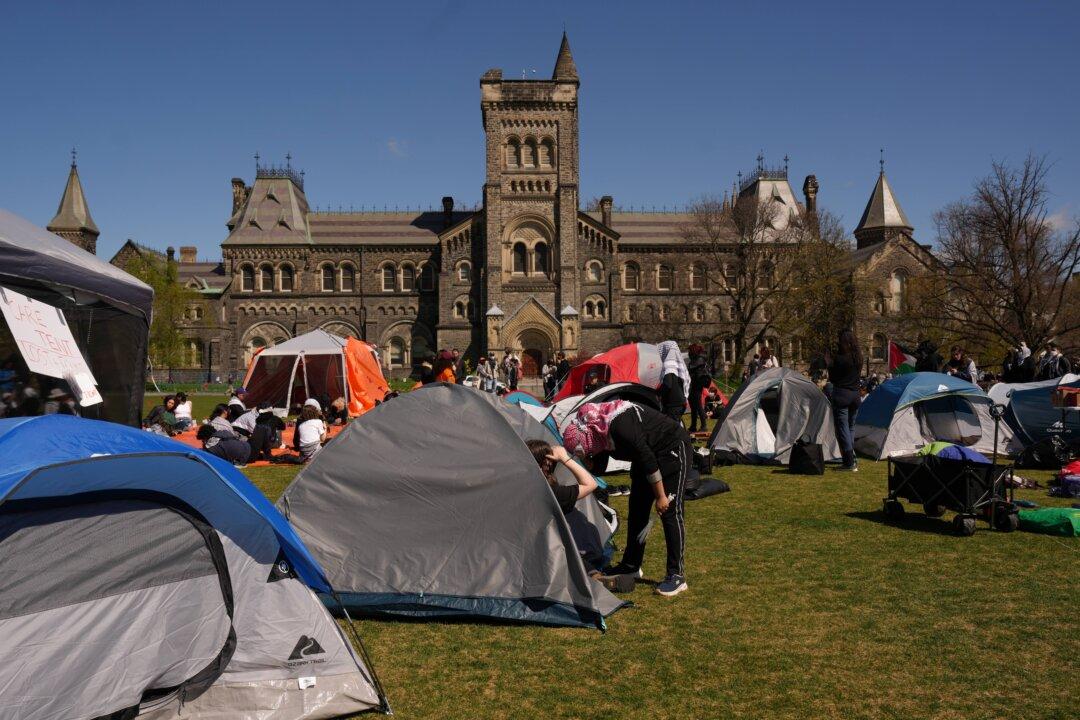Independent MP Kevin Vuong is condemning the actions of the campus police at the University of Toronto over the weekend after a handful of its officers stopped a counter protest by Jewish students almost before it started.
University Ph.D. student Joshua Samuels attempted to set up a pro-Israel counter encampment on school property June 2, but it was dismantled by campus police within “minutes” of being set up at King’s College Circle, according to social media posts from the protestors.





